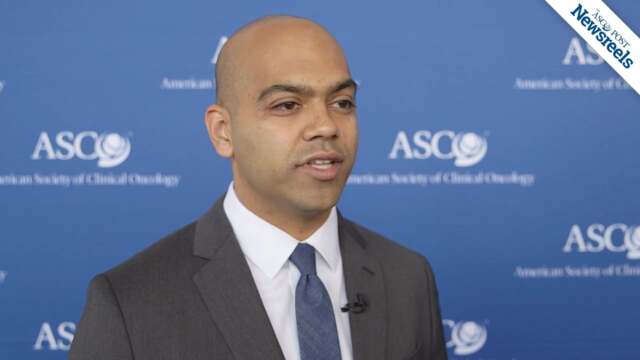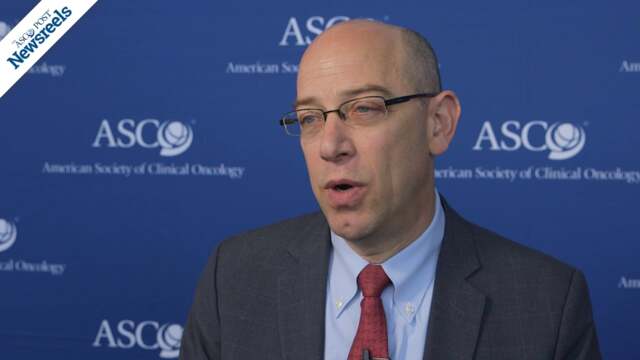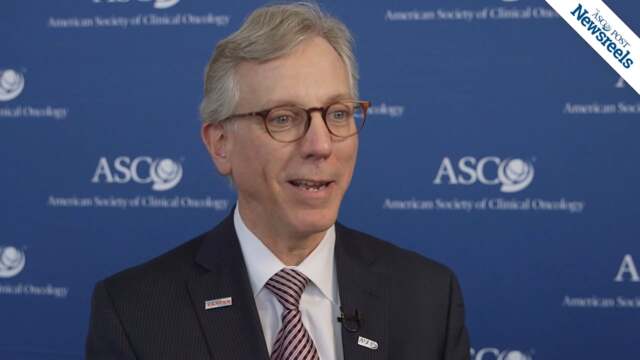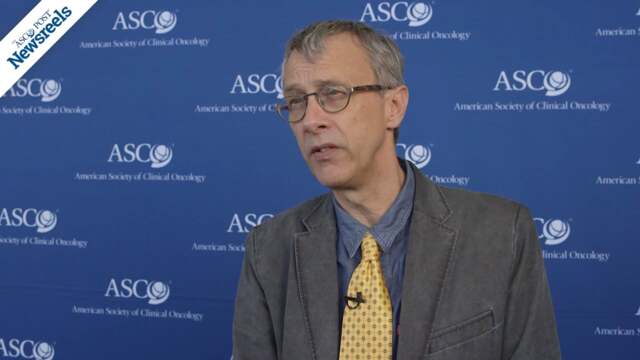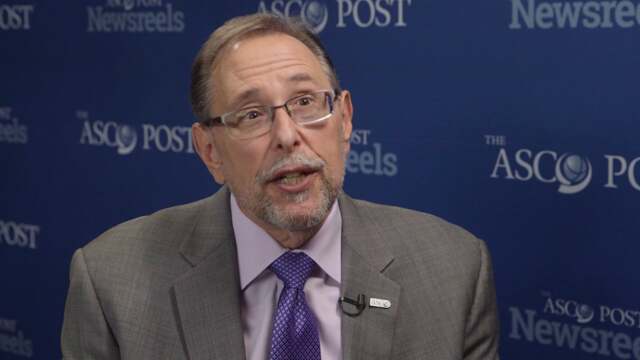Anthony J. Olszanski, RPh, MD, and Michael A. Davies, MD, PhD, on the COMBI-d Study on Cutaneous Melanoma
2016 ASCO Annual Meeting
Anthony J. Olszanski, RPh, MD, of Fox Chase Cancer Center, and Michael A. Davies, MD, PhD, of the University of Texas MD Anderson Cancer Center, discuss this phase III study of dabrafenib plus trametinib vs dabrafenib monotherapy in patients with unresectable or metastatic BRAF V600E/K-mutant cutaneous melanoma (Abstract 9502).
Nikhil Wagle, MD, of the Dana-Farber Cancer Institute, discusses the strides made in this national direct-to-patient initiative to accelerate genomics research (Abstract LBA1519).
Charles M. Rudin, MD, PhD, of Memorial Sloan Kettering Cancer Center, reports on the encouraging anti-tumor activity of this antibody drug conjugate against one of the most deadly malignancies: recurrent or refractory small cell lung cancer (Abstract LBA8505).
Newly elected ASCO President Daniel F. Hayes, MD, of the University of Michigan Health System Comprehensive Cancer Center, talks about his vision for the society during his tenure.
Martin J. Van Den Bent, MD, PhD, of the Daniel den Hoed Cancer Center, discusses the interim analysis of the EORTC phase III study on concurrent and adjuvant temozolomide in anaplastic glioma without 1p/19q co-deletion (Abstract LBA2000).
Richard L. Schilsky, MD, ASCO’s Chief Medical Officer, discusses the key presentations at this year’s conference.
